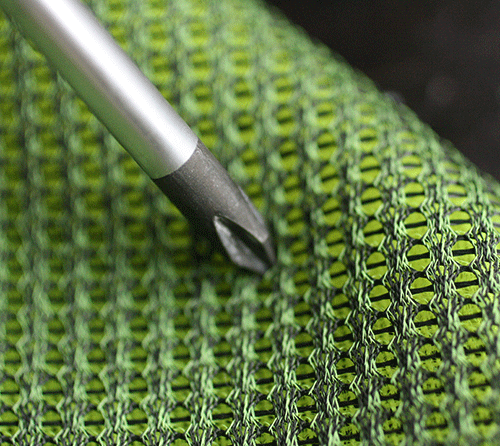Integrating Sensitizing Labs in an Educational Design Process for Haptic Interaction
DOI:
https://doi.org/10.7577/formakademisk.1269Emneord (Nøkkelord):
vibrotactile, material, tactile, embodied study, deafblindnessSammendrag
New design methods for educating designers are needed to adapt the attributes of haptic interaction to fit the embodied experience of the users. This paper presents educationally framed aesthetic sensitizing labs: 1) a material-lab exploring the tactile and haptic structures of materials, 2) a vibrotactile-lab exploring actuators directly on the body and 3) a combined materials- and vibrotactile-lab embedded in materials. These labs were integrated in a design course that supports a non-linear design process for embodied explorative and experimental activities that feed into an emerging gestalt. A co-design process was developed in collaboration with researchers and users who developed positioning and communications systems for people with deafblindness. Conclusion: the labs helped to discern attributes of haptic interactions which supported designing scenarios and prototypes showing novel ways to understand and shape haptic interaction.
Nedlastinger
Publisert
2016-08-19
Hvordan referere
Akner-Koler, C., & Ranjbar, P. (2016). Integrating Sensitizing Labs in an Educational Design Process for Haptic Interaction. FormAkademisk, 9(2). https://doi.org/10.7577/formakademisk.1269
Utgave
Seksjon
Artikler
Lisens
- Forfatteren(e) beholder sin opphavs- og kopieringsrett til eget manuskript, men gir tidsskriftet varig rett til 1) å fremføre manuskriptet for offentligheten i den opprinnelig publiserte digitale form, og 2) å registreres og siteres som første publisering av manuskriptet.
- Forfatteren må selv forvalte sine økonomiske kopieringsrettigheter overfor eventuell tredjepart.
- Tidsskriftet gir ingen økonomisk eller annen kompensasjon for innsendte bidrag, medmindre det er gjort særskilt avtale om dette med forfatteren(e).
- Tidsskriftet plikter å arkivere manuskriptet (inklusive metadata) i den opprinnelig publiserte digitale form, i minst ett dertil egnet åpent tilgjengelig langtidsarkiv for digitalt materiell, som for eksempel i de norske universitetenes institusjonsarkiv innen rammen av NORA-samarbeidet.
Verket vil bli publisert OpenAccess med en Creative Commons 4.0-lisens som tillater alle å lese, dele og tilpasse innholdet, også kommersielt, under lisensvilkårene:
Dette verket må tilskrives/ krediteres på riktig måte, en lenke må gis til CC-BY 4.0-lisensen, og endringer som er gjort må angis på en rimelig måte, men ikke på noen måte som antyder at lisensgiveren støtter deg eller din bruk.



